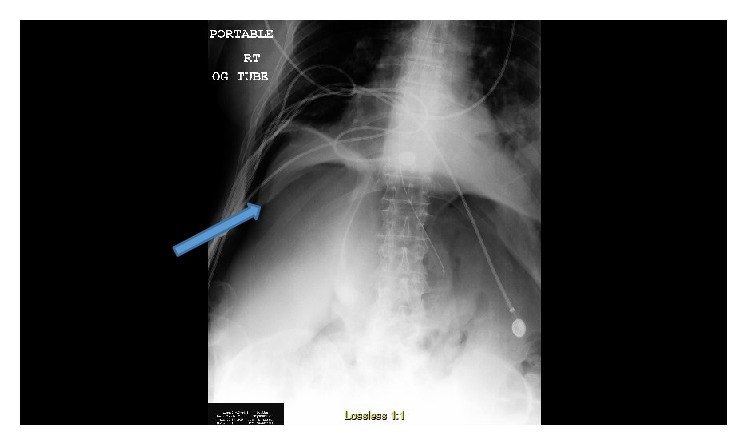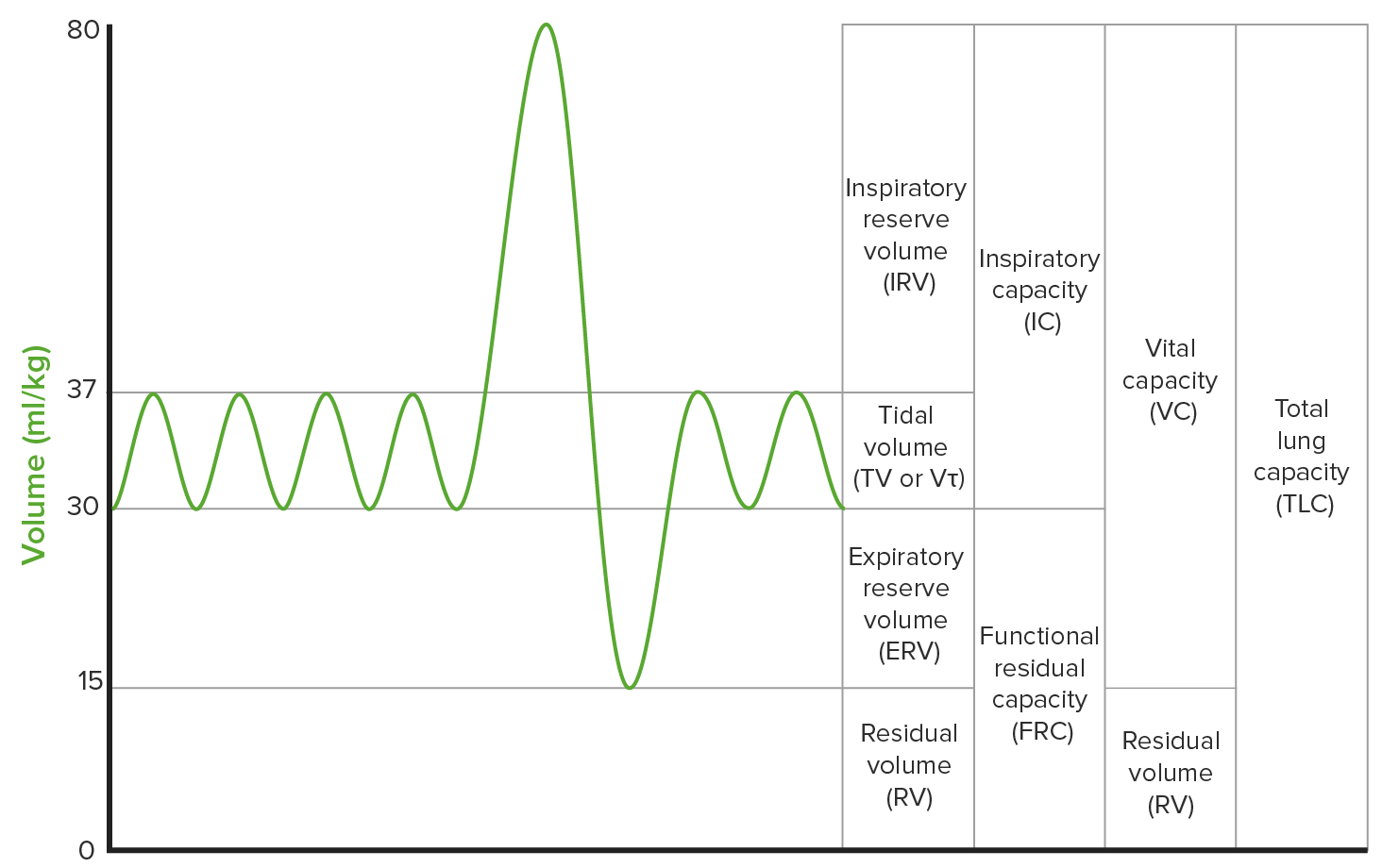Playlist
Show Playlist
Hide Playlist
Chronic Obstructive Pulmonary Disease (COPD): Treatment
-
Slides 04 COPD RespiratoryAdvanced.pdf
-
Download Lecture Overview
00:01 Treatment of COPD. Well most obviously and very clearly the patient needs to stop smoking. As I showed in the diagram earlier, a patient who develops COPD who is diagnosed early and is encouraged to stop smoking, that is the single most important thing that will happen for their health benefit. 00:17 That will put them onto a situation where their lung function will decline slower and they are much less likely to develop respiratory failure and death later in life. The other major treatment is pulmonary rehabilitation, and this is an exercise and educational programme which teaches the patient about their disease and makes them actually more capable of doing their exercise within the constraints of their disease. It’s a structured exercise programme that encourages them to use their lungs more than they would do in normal life and that gives them the facility, that sort of fitness to cope with their COPD better; and thirdly we use inhalers. To be honest, the treatment with inhalers is a little bit adhoc and random when it comes to patients with COPD. We start off with short acting B2-agonists as bronchodilators or antimuscarinics such as ipratropium, salbutamol or ipratropium. 01:14 Initially we use the short acting versions, if the patients respond well to those we may give them a little long acting versions of those. And then if they are having more severe disease we might give them a combination of a long acting B2-agonists and a long acting antimuscarinics. The use of inhaled steroids. These are used in combination with long acting bronchodilators and that’s really normally reserved for patients with more severe disease or those patients who are clearly progressing in an attempts to dampen down the inflammation that must be driving down that progression of their disease or those patients presenting with frequent exacerbations of their COPD in the hope that the inhaled steroid component will make those exacerbations less frequent. Because they are controlled to trial data showing that inhaled steroids can reduce the frequency of exacerbations in patients with COPD. 02:10 The problem with COPD is that, unlike asthma the inhaled steroid is not particularly effective against the inflammation. Other therapies that you can consider are oral theophyllines as an oral bronchodilator, it can be very useful and is an oral mucolytics can be used to thin the phlegm and allow the patient to cough up their phlegm more readily. 02:29 There are data now showing that low dose long-term antibiotics can be very beneficial and we use those in selected patients who are poorly controlled with frequent exacerbations for example. And some patients, and I emphasize the word ‘some’ here, some patients with very bad disease may benefit from oral corticosteroids on a long term basis. Corticosteroids are used as an oral treatment for exacerbations and are known to reduce the duration of an exacerbation and some patients feel that their breathing is clearly better when they are taking an oral corticosteroids, and that when they come off it, they deteriorate. And those patients with severe disease, we might consider a low dose, but that is only in a very small minority because the complications of oral corticosteroid therapy, as discussed in the asthma lecture, are major. Surgery. Now is a little bit counter-intuitive that surgery might be beneficial for somebody who has a diffused lung disease such as COPD, however there are specific circumstances where surgery could be useful. For example if you had a single large bullae that showed a CT scan earlier of somebody that had a right sided large bullae, you could resect that bullus and that will allow the underlying lung to expand more and that may improve the lung function. If somebody has the pneumothorax because of their COPD, a secondary pneumothorax, then that's quite likely that pneumothorax will need surgical treatment to heal the bronchopleural fistula that's formed. 04:04 And then there's lung volume reduction surgery. Now this is not used in many patients, but in a minority of patients, if you resect the redundant the emphysematous lobes, and they tend to be at the upper lobes in most patients with COPD, then that allows the remaining less emphysematous lung to expand and perhaps function better. So there are controlled trial data showing that lung volume reduction surgery does lead to improved lung function and a slight improvement in the patient's breathlessness. And finally, for patients with severe COPD who are relatively young, you may consider lung transplantation as a potential cure for their disease. Chronic severe COPD leads to respiratory failure. The patient will become hypoxic, and they may, as a consequence, need long term oxygen therapy and the normal criteria for that is that if they have an arterial PaO2 of less than 7.2. When they are well and stable, then we will consider them for long term oxygen therapy, and that's used for 15 hours a day. Throughout the night when they are asleep and also when there are at home during the day. And it's known that LTOT (long term oxygen therapy), used in these patients with chronic hypoxia improves survival. And this is thought to be because of effects on reducing the negative consequences of cor pulmonale. 05:34 In addition, patients with chronic type 2 respiratory failure might be suitable for an overnight non-invasive ventilation being used at home. And then when patients do develop cor pulmonale, that needs to be treated with diuretics and potentially, although only very rarely it is in practice that it is done, they might be given pulmonary artery based vasodilators such as Sildenafil.
About the Lecture
The lecture Chronic Obstructive Pulmonary Disease (COPD): Treatment by Jeremy Brown, PhD, MRCP(UK), MBBS is from the course Airway Diseases.
Included Quiz Questions
When discussing the treatment options for COPD, which of the following is usually the most effective first step to discuss with the patient?
- Smoking cessation
- Pulmonary rehab
- Diet and exercise modification
- Inhaled steroids
- Bronchodilators
A patient presents with severe COPD. She asks what her surgical options might include in the future. Which of the following is NOT a surgical treatment offered for this disease?
- Pulmonary catheterization
- Lung transplant
- Lung volume reduction
- VATS procedure for treatment of a secondary pneumothorax
- Bullae resection
Treatment options for chronic respiratory failure related to COPD can include pharmacologic and non-pharmacologic therapies. Which of the following is NOT a typical long-term treatment option?
- Daily steroids to reduce lung inflammation
- Diuretics to reduce cor pulmonale
- Daily long-acting bronchodilators
- CPAP for overnight respiratory failure
- Oxygen therapy for 15 hrs/day
Customer reviews
5,0 of 5 stars
| 5 Stars |
|
1 |
| 4 Stars |
|
0 |
| 3 Stars |
|
0 |
| 2 Stars |
|
0 |
| 1 Star |
|
0 |
VERY GOOD LECTURE AD SDFG DFRD SDESSA SEDSF DFD SDFFG





